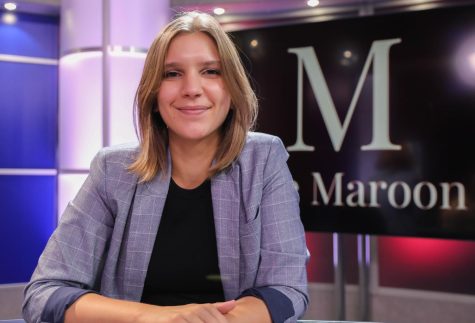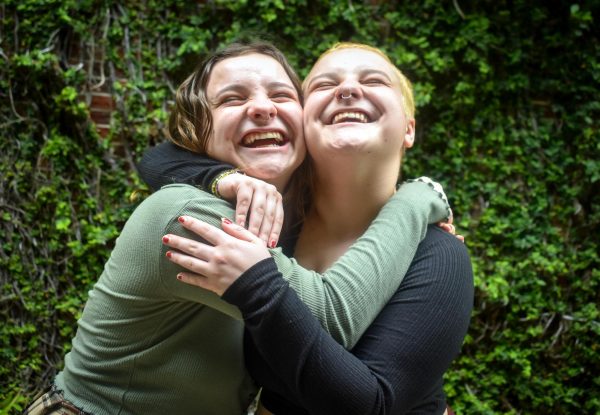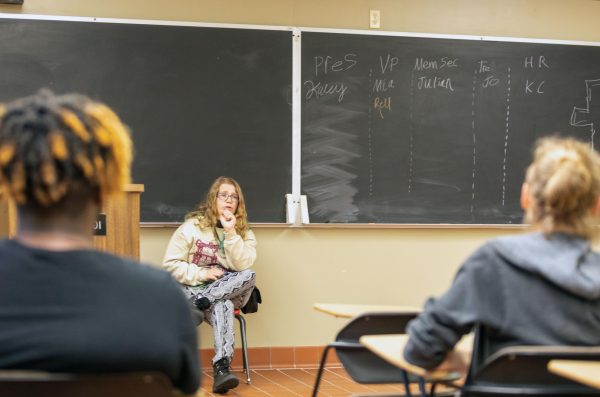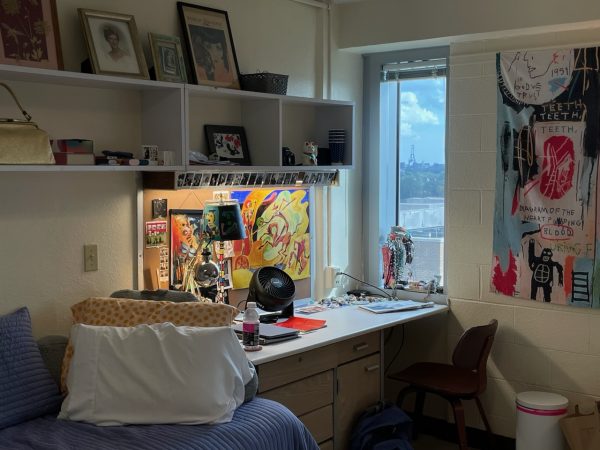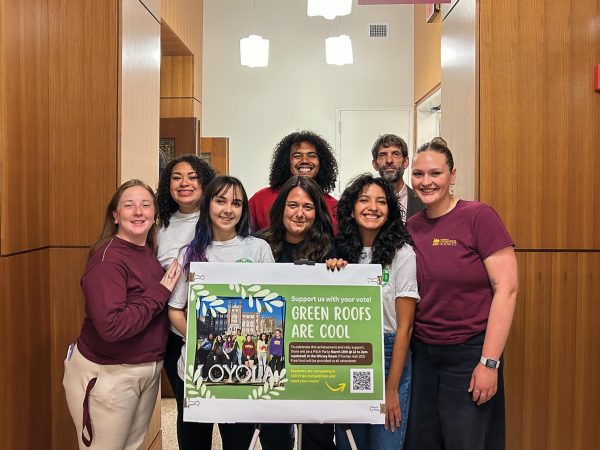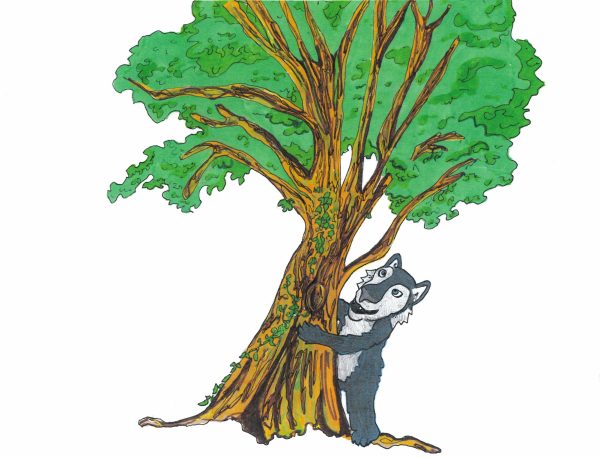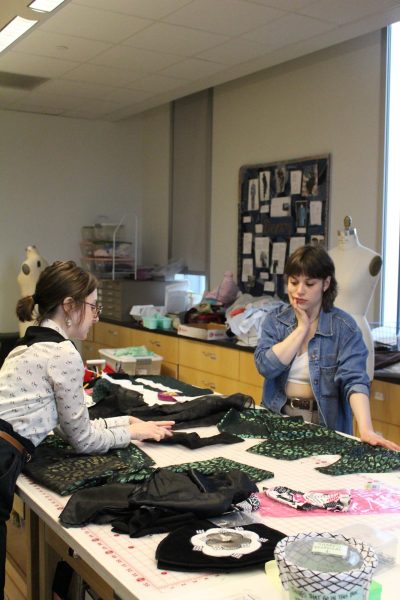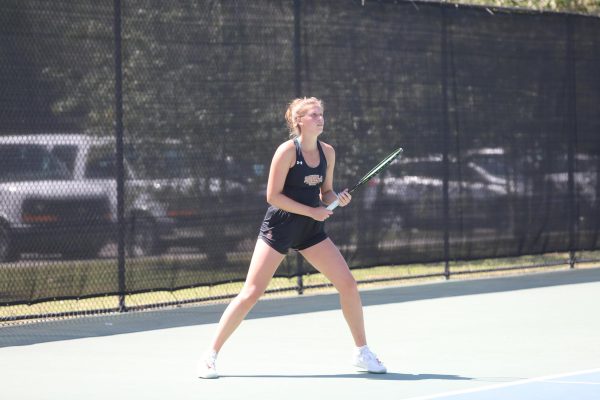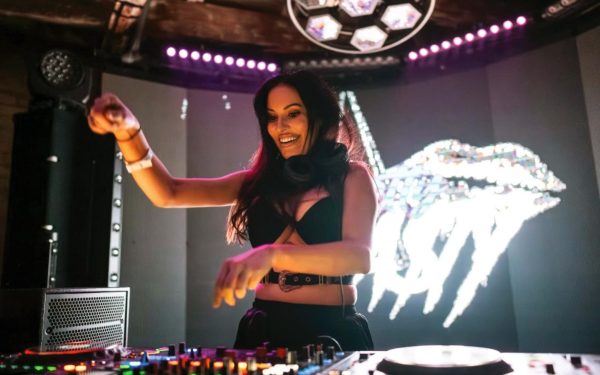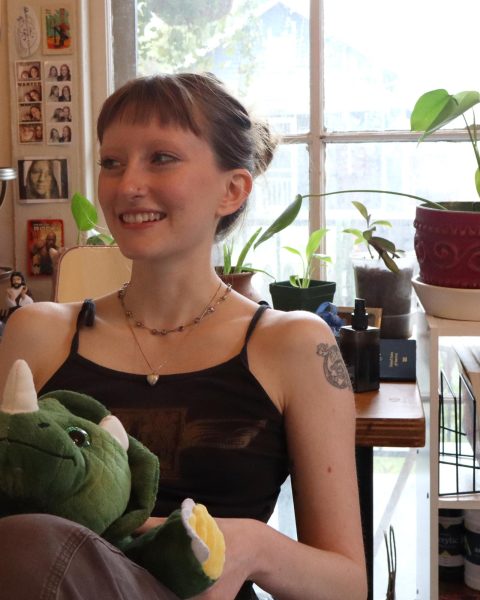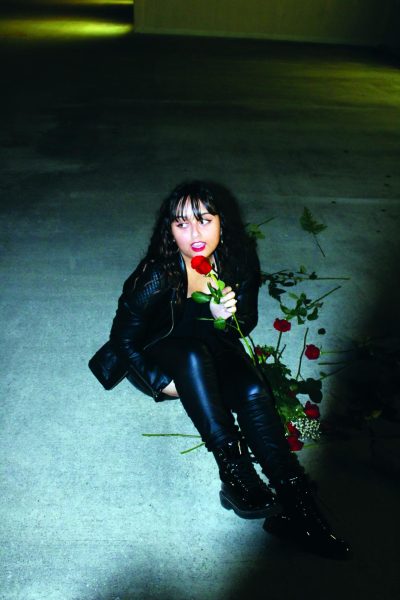Loyola’s class of 2020 reflects on graduating during a pandemic
Dana Gainey draws in Audubon Park, Monday, Mar. 15. Gainey has developed a newfound love for art since graduating in 2020. Photo credit: Madeline Taliancich
March 24, 2021
Senior year for Loyola’s class of 2020 began as most senior years do. Students were starting the last few classes they needed to finish their degrees and ordering graduation supplies. They were taking cap and gown photos and enjoying the last few months on a campus where they’d spent the last four years.
But senior year for the class of 2020 ended as senior years so rarely do, with a campus deserted two months early and a digital commencement ceremony. Instead of graduating with friends and entering the workforce in person, many seniors, such as biology major John Tarpey, rushed out of New Orleans because of the pandemic and moved back in with their parents.
Tarpey had just returned from a swim meet when the news broke that Loyola’s campus would be shutting down due to COVID.
“I didn’t even move out. I left all my belongings in New Orleans and had to drive back when my lease was up,” he said.
When campus shut down, Tarpey rushed back home to Illinois and said he wasn’t sure what to do. Before campus shut down, he had been applying for medical school and was coming to terms with the fact that he wouldn’t be getting in that cycle. After being rejected, he was so uncertain of the future that he even thought seriously about moving to Antarctica.
“The pandemic narrowed my options a bit,” he said.
After a few months of being back home, Tarpey was fortunate enough to find remote work data mining for the Smithsonian, where he had interned in the summer of 2019. But this job only satisfied him for so long.
“I started feeling dumb not working in health care during the greatest health care crisis of my lifetime,” he said.
As a result, Tarpey got his Certified Nurse Assistant Certification and is now a patient care technician in a Chicago hospital dedicated entirely to COVID care.
“I had a firsthand look at what was happening throughout the world,” he said.
Tarpey has plans to continue working as a patient care technician through the summer, but has recently been accepted into medical school and said he will probably take a few months off to relax before he’s busy for the next four years.
Although Tarpey began working during the pandemic, not all 2020 graduates were so lucky.
“It’s been really hard adjusting to the new normal,” Nolan Tecklenburg, a spring 2020 graduate, said.
Tecklenburg was a jazz studies major with a focus in piano performance at Loyola who had different gigs booked every weekend from March 2020 to when his lease would end in July. He had plans to move to New York with his girlfriend afterward and infiltrate the jazz scene.
Instead, after his lease was up, Tecklenburg moved back to his hometown in South Carolina to live with his parents. All of his gigs had been canceled by various venues. Live music was no longer happening in New Orleans.
“We really didn’t understand how bad things would get,” he said.
Tecklenburg wasn’t alone in experiencing a loss of job opportunities.
In any given year, the unemployment rate for those graduating from college tends to be higher than the general public, according to José F. Domene, co-chair of the Special Interest Group of the Society for Studies in Emerging Adulthood.
“This year has been one of the most competitive years on record to enter the workforce,” Domene said.
Domene said this year has been harder on pandemic graduates because many are also competing against those who are out of work who have 10 to 20 years of experience in the field as well.
Domene said the pandemic has also created a lot of uncertainty, which is especially true for individuals in the performing arts, who are unsure where these industries are heading.
After opportunity in New Orleans dried up and he moved back home, Tecklenburg picked up part-time work with his dad’s business, traveled to national parks with his girlfriend and composed some of his own music. However, he said there aren’t many music gigs to be had at the moment. Like many music graduates, he tried working on his online music presence but said it’s been tough.
“It doesn’t feel the same as performing for people in person,” he said.
Ella Blue Paskel, a popular and commercial music graduate, has felt the same itch to perform live since the pandemic shut down live music venues. There was even a period of time that New Orleans’s case numbers got so high that Paskel said she couldn’t even be with her bandmates to rehearse.
“There’s no world where we can make a living off of this for the next year,” she said. “We’ve tried live-streaming but that only gets us so far.”
Her band had a tour planned after graduation, but each performance was canceled in March when the city shut down.
“All the venues kind of disappeared,” she said.
Even as venues and performance opportunities disappeared, Paskel was still able to experience music in some way. She’s been teaching students piano, voice and guitar at the Louisiana Academy of Performing Arts, a gig she had before the shutdown that transitioned to Zoom afterwards.
A few months into quarantine, she released a record she had recorded before leaving campus.
Out of this record, Paskel landed 12 sync deals, where her music would run in the background of programs with different networks. Her music is set to underscore television shows such as “Keeping Up With the Kardashians” and “Bill Nye Saves the World” and will bring in a new source of music-related revenue for her.
Despite teaching music and her new deals, Paskel said there were still moments she doubted her career over the past year.
“It’s literally always been music since I was little,” she said. “The fact that I had that kind of doubt was shocking.”
While the world of music is still an uncertain one, Paskel and her band were given the opportunity to perform at South by Southwest in Austin on March 18 and 19, their first gig in over a year. She said she’s been in shock since learning that they’d be performing.
“It feels like the most unreal, amazing thing ever,” she said. “I’ve never been more ecstatic or nervous.”
Paskel isn’t the only graduate who experienced doubt about their career path.
Dana Gainey, who uses gender neutral pronouns, was an English major who has since realized they value art more than anything else. Before the pandemic, they said their post-graduate plans were constantly in flux. They were considering working in publishing or an editorial position, but these plans disintegrated entirely when things shut down.
“Once the pandemic hit, all of the administrative day-to-day things of my life melted away,” they said. “It made me realize how important art is to me and I think I’m going to try to go to art school.”
Gainey was laid off at the beginning of the pandemic and said it was a blessing in disguise. It allowed them to finish their degree without worrying about working to survive and gave them the space to realize that they ultimately want to pursue a creative life.
Although the pandemic upended their life, Gainey said without a doubt COVID saved it.
“Every single assumption that I’ve ever made about myself and my life has been called into question and I’ve had to grapple with the realities inside of me,” they said.
Without the pandemic, Gainey said they likely would have ended up at a comfortable 9-to-5 job and wouldn’t have pushed themselves as hard as they did. They wouldn’t have discovered their love of art, performance and music before committing to a career in something else entirely.
“It’s been the most rewarding, challenging, painful, dramatic, ridiculous year of my life,” they said. “I think that in 10, or 15, or 20 years, or maybe even next year, I’m going to be so tired but so thankful that it happened.”


